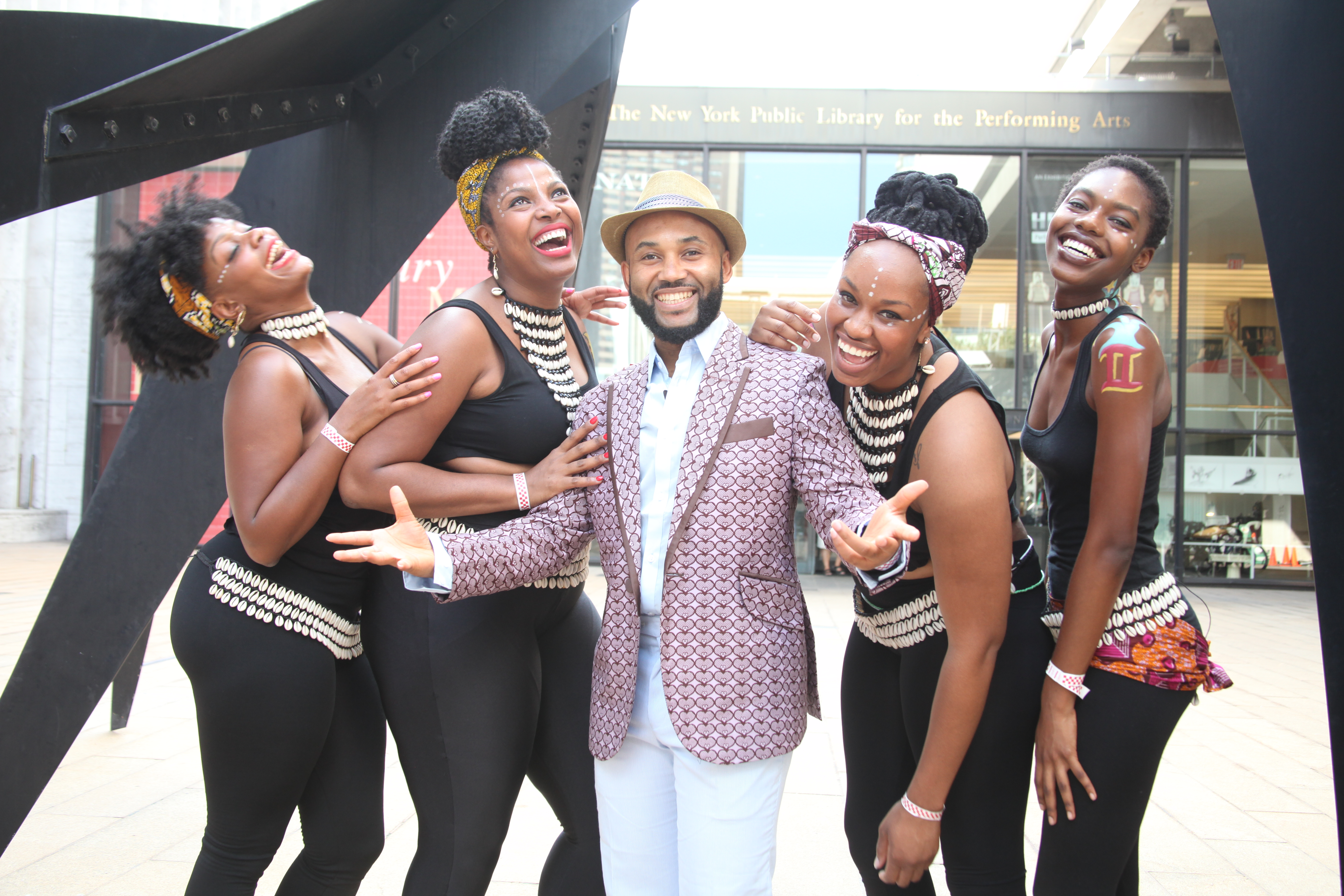For the seventh year in a row, Isaac Katalay will be opening the Congo in Harlem (CIH) festival on October 18, likely with a legs-akimbo, adrenalin-fuelled performance of ‘contemptra’ (contemporary + traditional). It’s the name he coined for his blend of traditional Congolese music with contemporary influences from Congo and further afield. Isaac’s mission is to increase not only the representation of Congolese music and culture in the United States but also the recognition of the region’s contributions to global culture.
7th Annual @CongoinHarlem Film Festival starts 10/18! Films and events to deepen our understanding of Congo- http://t.co/tUsCroi0ke
— Maysles Documentary Center (@MayslesCinema) October 13, 2015
‘You know black Americans were focused on more indigenous music from Africa – rural music from Mali or Senegal for example. When you have a metropolitan city like Kinshasa where there has been an exchange of modernity for a long time, you have to adjust the pitch to appeal to African Americans.’
‘I saw a parallel in the way Harlem mixes up people from different black cultures. I wanted to tell Kinshasa’s story here.’
In 1996, Isaac and two of his younger siblings joined his Guinean father in New York leaving his mother, scion of a family of traditional healers, in Kinshasa. After spending two months learning English, Isaac began high school in New York City. But by that time, Isaac was already pure Kinois. The city and its pumping culture had permeated his blood.
‘There’s no place like it,’ he says of his beloved city. ‘Kinshasa is extremely dynamic: it’s the administrative center of the Congo, and it’s also a port city. The mosaic of the city is made up of interactions of people from different Congolese regions and from different countries.’
Isaac finished an undergraduate degree in International Criminal Justice, then decided to pursue music full time. He knew he wanted to bring the Kinshasa he loved to Harlem. ‘I saw a parallel in the way Harlem mixes up people from different black cultures. I wanted to tell Kinshasa’s story here.’
Isaac has played with nearly every Congolese musical star including legends like Samba Mapangala and Lokassa ya Mbongo as well as newer artists like Fally Ipupa.
In 2009, Isaac joined up with the inaugural Congo in Harlem festival of film, music and events. It was founded by his friends Lynn True and Nelson Walker of True Walker Productions in partnership with the Washington, D.C. based organisation, Friends of Congo. The festival has become an annual event, with some of Congo’s most acclaimed filmmakers, journalists and artists jetting into New York City for the week-long event at Maysles Documentary Centre.
Every year, Isaac and his band open and close CIH with a celebratory performance; Isaac moves from instrument to instrument as well as singing lead vocals. It’s a remarkable accomplishment for a man who, in true Congolese fashion, learned through doing. He never studied music: Isaac began playing drums during healing rituals in Kinshasa. He has also taught himself to play guitar, drums, bass and conga and has played with nearly every Congolese musical star including legends like Samba Mapangala and Lokassa ya Mbongo as well as newer artists like Fally Ipupa.
I liked a @YouTube video from @isaackatalay http://t.co/hoelqvRLVH Congolese conga improv on 5 congas by Nkumu Katalay
— Nkumu Katalay (@Isaackatalay) October 2, 2015
Isaac traveled with the band Soukous Stars before fronting his own band, Nkumu Katalay (his stage name) and the Life Long Project (his band whose name represents his vision that humans are on a life-long spiritual journey).
Though he is an avid disseminator of Congolese culture in the United States, he still feels some piece of the spirit is missing
‘I named it because life is a long project for the living. Even the basic conversations are a small project, a small journey. We are spreading the culture, helping get tomorrow ready for the youth.’
Isaac laments all the time he has spent away from Kinshasa. ‘It takes a lot of strength to be away – my umbilical cord is buried there. You want to smell the raw smells. You want to eat from a random cart on the street.’
https://instagram.com/p/8UP4CoTO3x/?taken-by=nkumukatalay
Right now though he is an avid disseminator of Congolese culture in the United States, he still feels some piece of the spirit is missing — a little something holding him back. Isaac says that most Americans who have seen him perform are wrong if they think they’ve seen him dance; he’s only let loose twice during his musical career in New York.
‘When I really dance,’ Isaac says, ‘You’ll know…’
Follow Isaac on Twitter @isaackatalay
Find out more about congoinharlem.org


